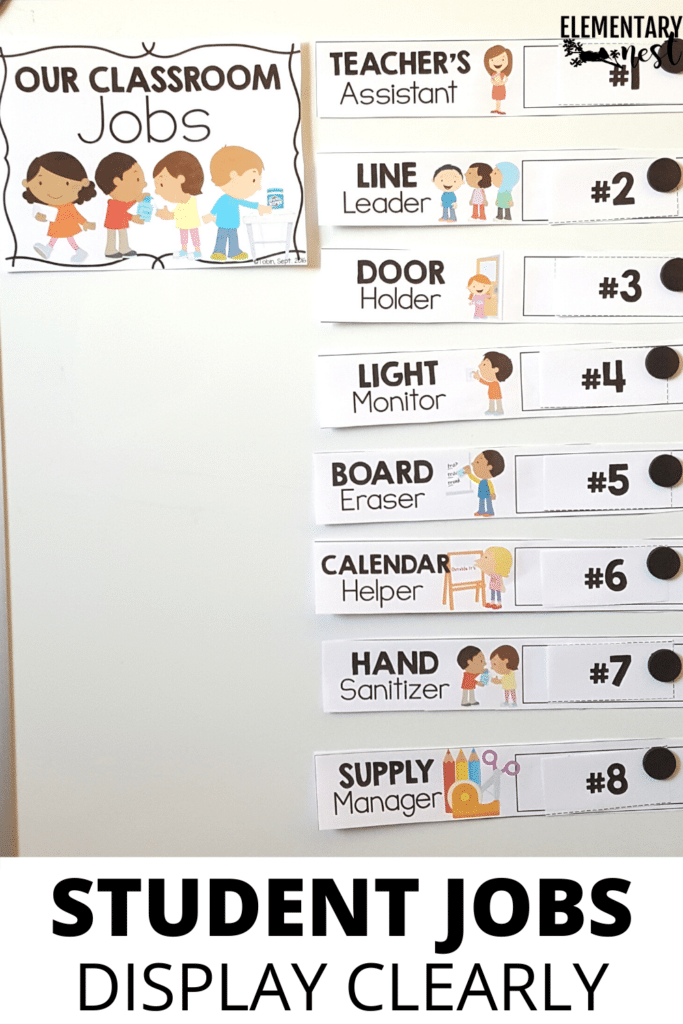
Introduction
Student jobs in the classroom can be a valuable way to foster a sense of responsibility, teamwork, and pride among students. By assigning specific tasks to students, teachers can create a more organized and efficient learning environment. This article explores the benefits of student jobs in the classroom and provides examples of different roles students can take on.

The Benefits of Student Jobs
Student jobs offer numerous benefits for both students and teachers. Firstly, they help develop important life skills such as time management, organization, and problem-solving. Students learn to prioritize tasks and meet deadlines, which are essential skills for future success. Additionally, student jobs promote a sense of ownership and accountability, as students take pride in their assigned responsibilities. They also foster a positive classroom community by encouraging teamwork and collaboration.

Examples of Student Jobs
There are various student jobs that can be implemented in the classroom. One common role is the "classroom librarian." The student assigned to this job is responsible for organizing and maintaining the classroom library. They ensure books are in proper order, create a checkout system, and recommend new books to their classmates.

Another important role is the "materials manager." This student is responsible for distributing and collecting classroom materials such as textbooks, worksheets, and art supplies. By taking charge of these resources, the materials manager helps keep the classroom organized and ensures that everyone has the necessary materials for each lesson.

One more example of a student job is the "technology expert." In this role, the student assists their classmates and the teacher with technology-related tasks. They may help set up and troubleshoot computers, projectors, or other devices used in the classroom. The technology expert ensures that technology runs smoothly, allowing for seamless integration of digital resources into the learning process.

Implementing Student Jobs
To effectively implement student jobs in the classroom, teachers should consider a few key strategies. Firstly, they should clearly define the roles and responsibilities of each job. This includes providing thorough instructions and modeling expectations. Teachers can also rotate student jobs periodically, allowing each student to experience different responsibilities and develop a range of skills.

It is important to provide ongoing support and guidance to students in their assigned roles. Teachers can offer regular check-ins, provide feedback, and address any challenges or questions that arise. Recognizing and celebrating the efforts of student workers is also crucial to maintaining motivation and a positive classroom environment.
Conclusion
Student jobs in the classroom offer numerous benefits and can enhance the overall learning experience. They provide students with valuable life skills, promote responsibility and teamwork, and contribute to a well-organized classroom environment. By implementing student jobs, teachers can empower their students and create a sense of ownership and pride in their learning space.